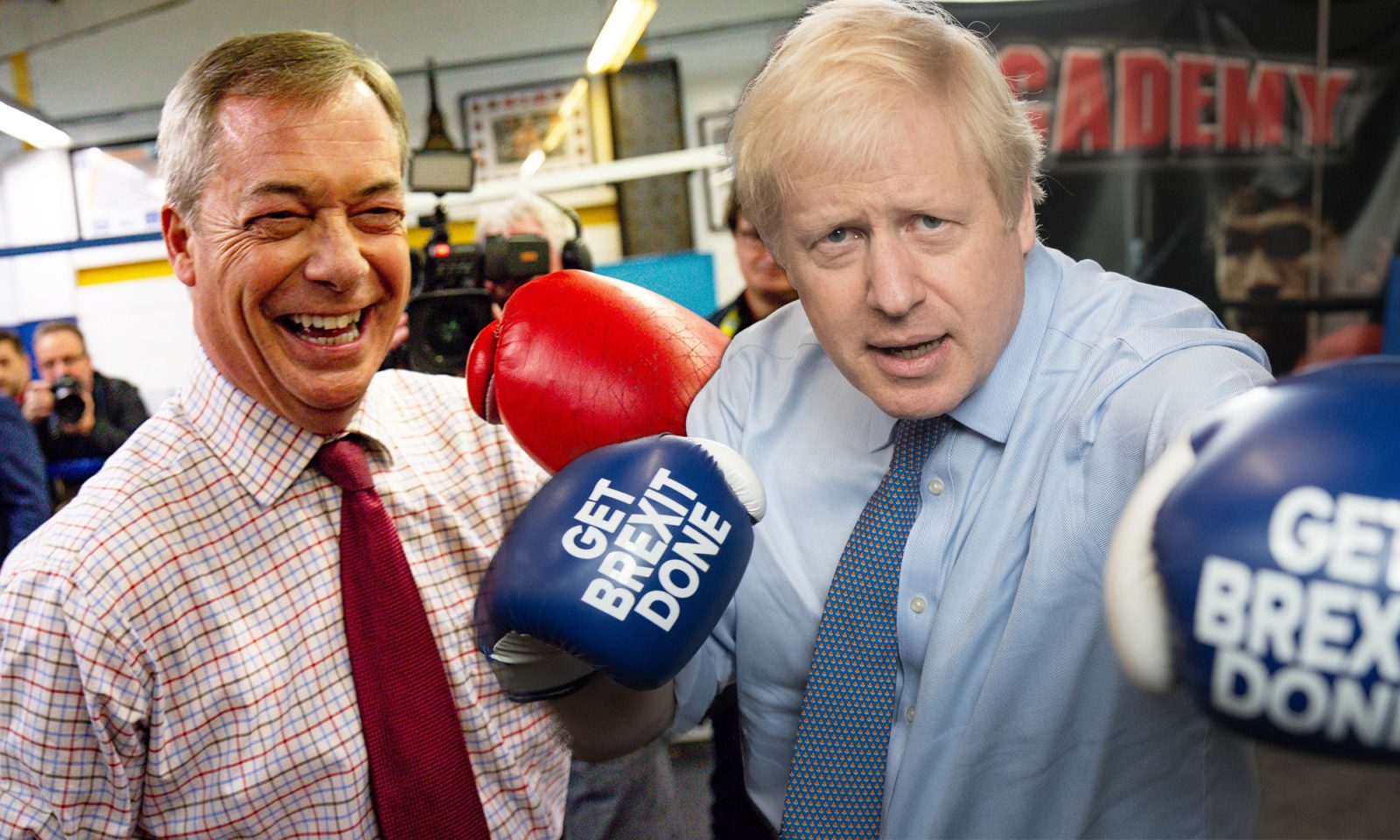The UK is free

Written by Dr. Bruno Bandulet for Junge Freiheit.
They still exist, the men who make history. The long, at times nightmarish Brexit drama can be traced back to 1992, when Great Britain joined the Maastricht Treaty and a then unknown Conservative Party member named Nigel Farage left the Tories in protest. The crusade he headed to reach its destination on December 12, 2019, when Farage's old party had the best election result since 1983 and the English decided to leave the EU a second time after the June 2016 referendum.
It remains to be seen how the elections would have ended had the co-founder of the UK Independence Party not won on November 11, against considerable opposition in his current party (Brexit Party), in 317 of the 650 constituencies. Farage left it to the Tories.
In any case, The Guardian saw it as the "most important moment" of the election campaign: "Farage won it for Johnson." Even more, without Farage, Brexit might have become reality later, but not now. He went into politics, he had staying power, he presented the British with the vision of a country that rules itself again.
Above all, he realized that he had to use the lever where the Tories were divided between EU supporters and EU opponents. To pacify his disputed party, David Cameron used the referendum instrument in 2016. He was convinced that she could win it. But the majority voted for the Brexit, Cameron had to leave Downing Street to Theresa May, she like him a "Remainer". May had also promoted staying in the EU.
Huge affront to Brussels
The Prime Minister took a year to start the exit negotiations at all. In Brussels, the French chief negotiator Michel Barnier had gathered 50 top-class experts in a high-security wing on the fifth floor of the Berlaymont, the seat of the EU Commission. They did what the EU technocrats are best at: turning something that is basically simple, namely Brexit, into something complicated.
While the British came poorly prepared, Barnier's people dominated the EU's Kafkaesque legal material, which is said to be one hundred thousand pages long. They didn't want to let the English go with dignity, they wanted to punish them. They even conspired with the “Remainers” in the House of Commons, as the EU-friendly London Financial Times said.
Because the Union's center of power in Brussels viewed the mere idea of Brexit from the outset as a tremendous affront. How could the EU's second largest economy, the strongest European military power, a nation of 66.4 million that had been there since 1973, abandon the consensus of an "ever closer Union"! How could it place democracy and self-determination above the comfortable prosperity that the EU is said to guarantee! How dare you!
Brexit was delayed. The situation of May's successor Boris Johnson still seemed hopeless at the end of September. Twenty-one Tory MPs had left the ruling party. Johnson had lost the majority in the lower house and all votes. The Supreme Court had opposed him. He could not get new elections because he lacked the necessary two-thirds majority in the House of Commons. And yet in the end Johnson managed to outmaneuver everyone and win the election as well as the referendum of 2016 with three simple words: "Take back control" and then: "Get Brexit done".
German politicians could learn a lot from this
Politicians in Germany could learn a lot from this story: How election campaigns must be set up. How a smaller populist party can put pressure on the larger conservative party. How a weakened People's Party can find its way back to its old strength when a charismatic figure moves to the top and is ready to take full risks. And why the shift of the Social Democrats to the far left also predictably ends in ruin in this country.
Germany's media and political elites were caught on the wrong foot by the December elections - as before by the referendum. Peter Frey, the unspeakable editor-in-chief of ZDF, still considered Johnson a "clown" even the day after the election. You didn't understand anything. You have already dismissed the outcome of the referendum as a misunderstanding and a mistake to be corrected. The Germans, a fearful people, always misjudge the English. Helmut Kohl was already certain in the nineties that the hesitant Britain would still join the euro. Margaret Thatcher once said that because the Germans did not want to govern themselves, the other Europeans should not be allowed to do so.
The die is cast. Britain will leave the EU at the end of January and then negotiate a free trade agreement. From a German perspective, there is no reason to be happy. The Federal Republic together with the market-oriented countries of Northern Europe will lose the blocking minority in Brussels. England is free, Germany remains entangled in an EU that is geared towards redistribution and a fragile, misconstructed euro zone. Over the next decade, it will turn out that the English have drawn the better card.
Source:
Junge Freiheit






